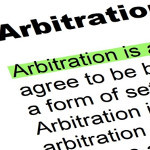Paying the Price: The Pitfalls of Ineffective Liability Waivers
Poorly drafted waivers include lawyerly language that may appear concrete on the surface but crumbles during a lawsuit, warns Hellmuth & Johnson in a blog post.
Authors Micheal D. Howard and Jason S. Raether describe a recent case involving a fitness studio that demonstrates how a poorly drafted waiver can be as effective as having no waiver at all.
In the case, involving an injury to the customer of a fitness studio, a trial court found in favor of the studio, based on the language of an indemnity agreement. But the appellate court reversed, finding the language to be inadequate.







